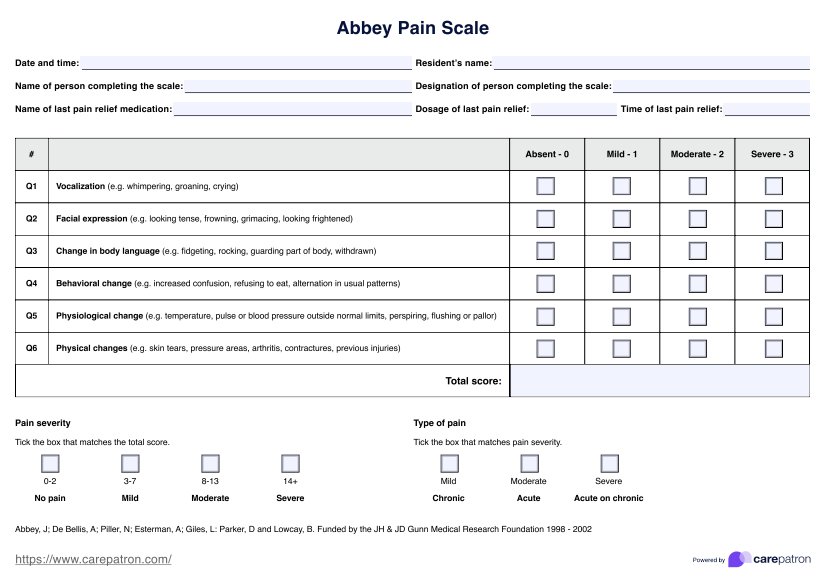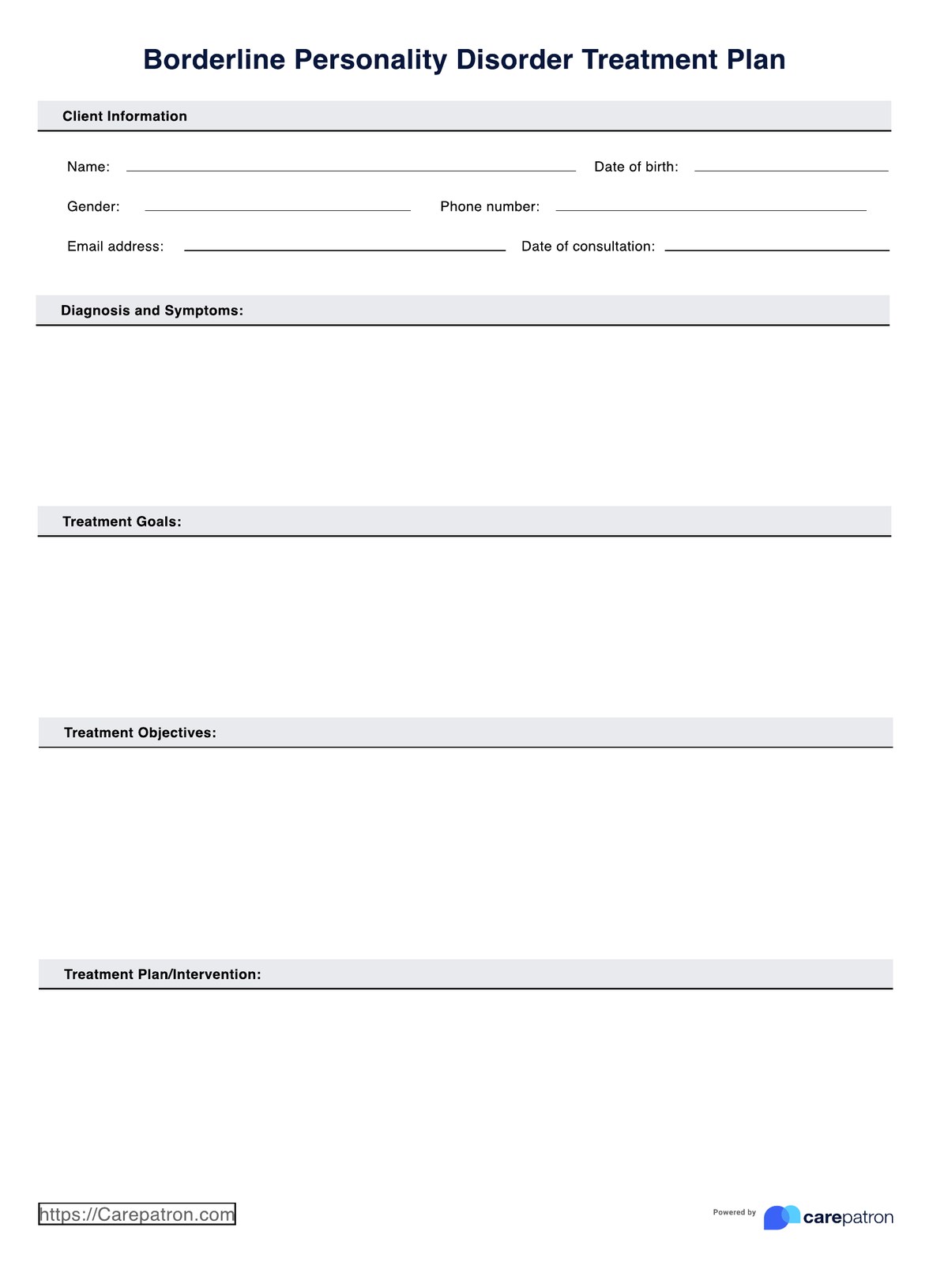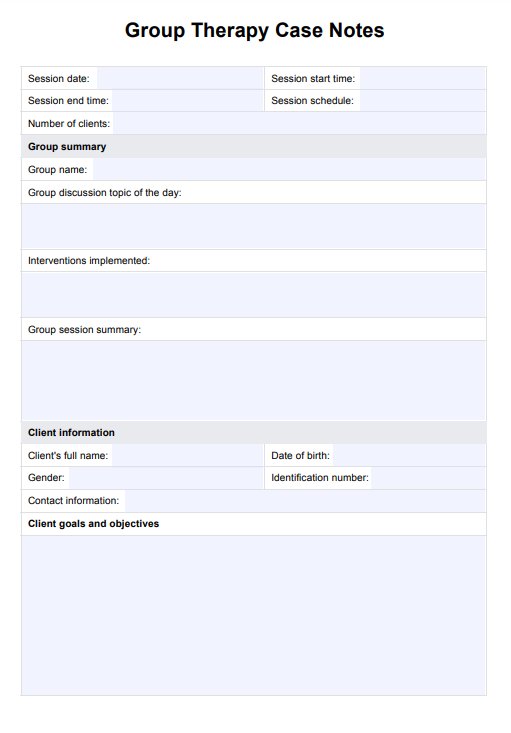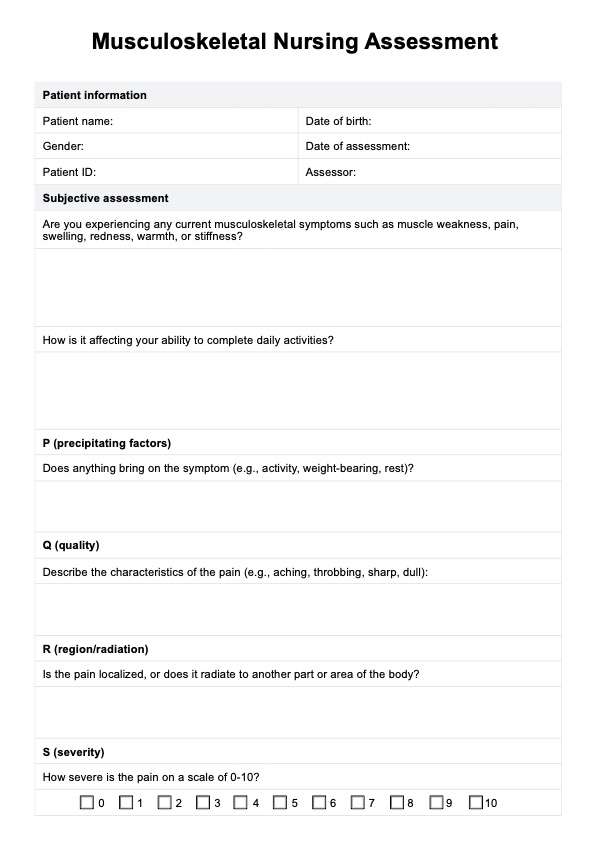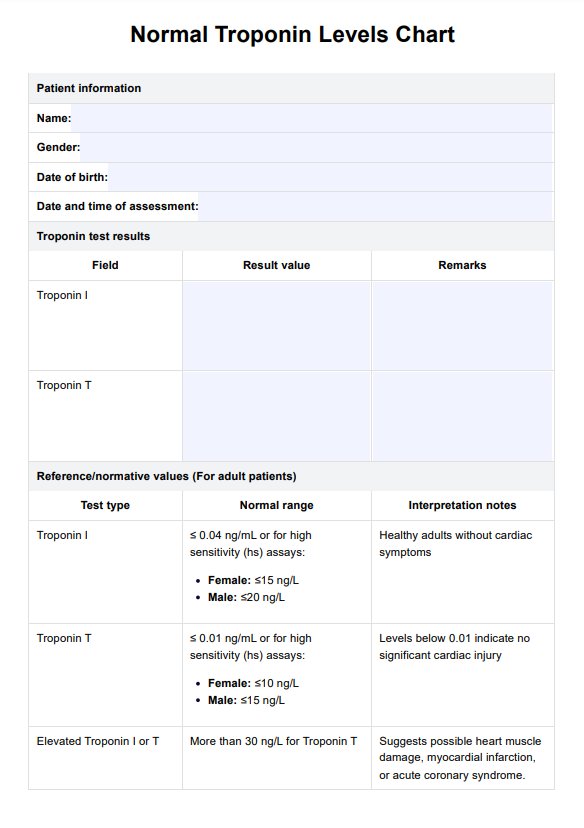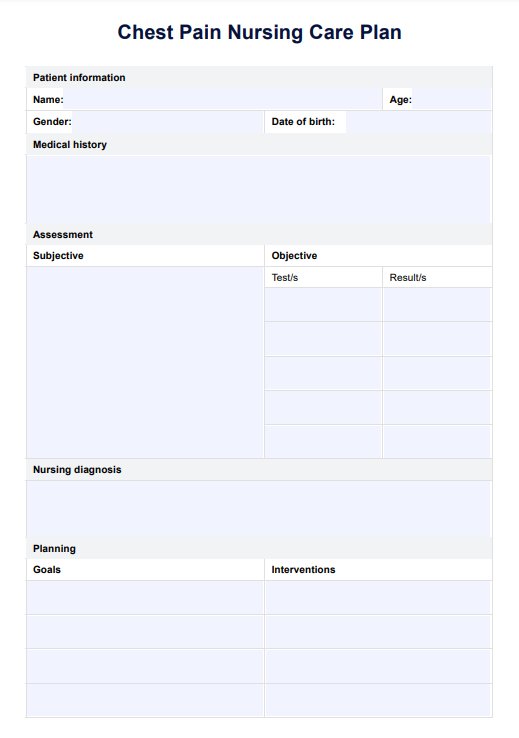Pharmacogenetic Test
Learn about the Pharmacogenetic Test and how it impacts drug responses. Understand its clinical significance and why it's crucial for personalized medicine.


What Is A Pharmacogenetic Testing?
Pharmacogenetic Testing, also referred to as pharmacogenomics testing, delves into a genetic analysis technique that scrutinizes the influence of an individual's genes on their reaction to medications.
This assessment scrutinizes genetic variations that can impact the metabolism of drugs, their efficacy, and potential side effects. By conducting a Pharmacogenetic Test, healthcare professionals can make informed decisions regarding drug selection and dosing, leading to tailored and more effective treatments.
A sample of the patient's DNA is obtained during this examination, typically through a cheek swab or a blood sample. This genetic material is then analyzed to pinpoint genetic markers linked to drug metabolism. These markers furnish insights into how an individual might respond to various medications.
Common motivations for undergoing Pharmacogenetic Testing include optimizing drug therapy for individuals with chronic conditions, averting adverse drug reactions, and enhancing medication effectiveness for mental health disorders, pain management, and cancer treatment.
The Pharmacogenetic Test results empower healthcare providers to customize medication regimens to suit the unique genetic composition of each patient, thus facilitating treatment outcomes and minimizing undesirable effects.
Pharmacogenetic Test Template
Pharmacogenetic Test Example
How Does It Work?
For healthcare professionals and patients alike, having access to free clinical documentation software for Pharmacogenetic Testing is invaluable. It facilitates the management of medications and the formulation of individualized treatment plans.
Step 1: Obtain a Template
Commence the documentation process by obtaining reliable and readily Printable Pharmacogenetic Testing.
Step 2: Input Genetic Data
Proceed to input essential genetic information, including pertinent genetic markers, genetic variations, and predictions regarding drug responses. The accurate recording of this information is of utmost importance for optimizing medication choices.
Step 3: Specify the Test Date and Medication Prescriptions
Specify the date the Pharmacogenetic Test was performed and provide detailed information concerning the medications prescribed. This information is indispensable for monitoring medication responses and any potential adjustments.
Step 4: Thorough Documentation of Genetic Analysis
In this step, offer a comprehensive account of the genetic analysis procedure. Provide detailed information about the genetic markers under examination, their significance, and how they influence medication responses. This broad overview of the testing process offers insights into the patient's unique pharmacogenomic profile.
When Would You Use this Test?
Pharmacogenetic Testing applies to scenarios concerning a patient's medication response or potential for adverse drug reactions. It proves invaluable for tailoring medication regimens, preventing unwanted side effects, and ensuring the safety and efficacy of drug therapy.
This test is particularly beneficial for patients with a genetic predisposition to adverse drug reactions, individuals experiencing medication-related complications, and those with chronic medical conditions that require personalized drug management.
Healthcare providers dealing with patients on a multitude of medications will also benefit from having this template at their disposal. Patients undergoing treatment with coumadin, clopidogrel, or selective serotonin reuptake inhibitors (SSRIs)require a Pharmacogenetic Test to optimize medication selection and dosage.
Utilizing templates for accurate documentation is vital in these clinical scenarios, contributing to enhanced patient care and improved therapeutic outcomes.
What Do the Results Mean?
The Free Pharmacogenetic Test gives healthcare providers free clinical notes software to note all vital details when conducting this test.
It is a genetic analysis of how an individual's genes influence their response to medications. This assessment is crucial for customizing drug therapy, optimizing medication choices, and reducing the risk of adverse drug reactions.
A typical result indicates that the patient's genetic makeup aligns well with the prescribed medications, signifying a strong likelihood of successful treatment with minimal side effects. Conversely, an atypical result may reveal genetic variations that can impact drug metabolism or effectiveness. This information is essential for averting medication-related complications and assisting healthcare professionals in choosing alternative treatments or adjusting dosages.
In situations where results are inconclusive, a scenario frequently encountered in patients with complex medical conditions or those taking multiple medications, healthcare providers will delve into the patient's medical history and conduct a thorough evaluation to make informed decisions concerning drug management.
Research & Evidence
Pharmacogenetic testing has a deep-rooted history in clinical research and medical practice, with its origins tracing back to the mid-20th century. As time has progressed, its value and relevance have expanded, supported by a growing body of evidence affirming its dependability and precision in assessing medication responses.
In modern healthcare, this test has become an essential diagnostic tool for personalized medicine. It fulfills a multifaceted role in pharmacogenomics, contributing to diagnosing a broad spectrum of genetic variations affecting drug metabolism. This encompasses a variety of conditions, including but not limited to adverse drug reactions, genetic predispositions to medication-related complications, and optimizing drug therapy for numerous medical conditions.
The enduring significance of pharmacogenetic testing is exemplified by the persistent research endeavors aimed at refining and enhancing its capabilities. Scientists and healthcare professionals are dedicated to exploring innovative techniques to expedite test results while advancing their accuracy.
Reference
- Pharmacogenetic testing to reduce adverse drug reactions: a systematic review and meta-analysis (2022) - Authors: Manalac, J. C., et al.
- Pharmacogenetic interventions to improve outcomes in patients with multimorbidity or prescribed polypharmacy: a systematic review (2021) - Authors: Phillips, K. A., et al.
Commonly asked questions
Doctors typically request pharmacogenetic tests for patients with complex medical conditions or who are taking multiple medications.
Pharmacogenetic tests can be used to help doctors choose the best medication, determine the appropriate dose, identify patients at risk of side effects, and monitor patient response.
A sample of the patient's blood, saliva, or cheek cells is tested for variations in the genes that are involved in drug metabolism.


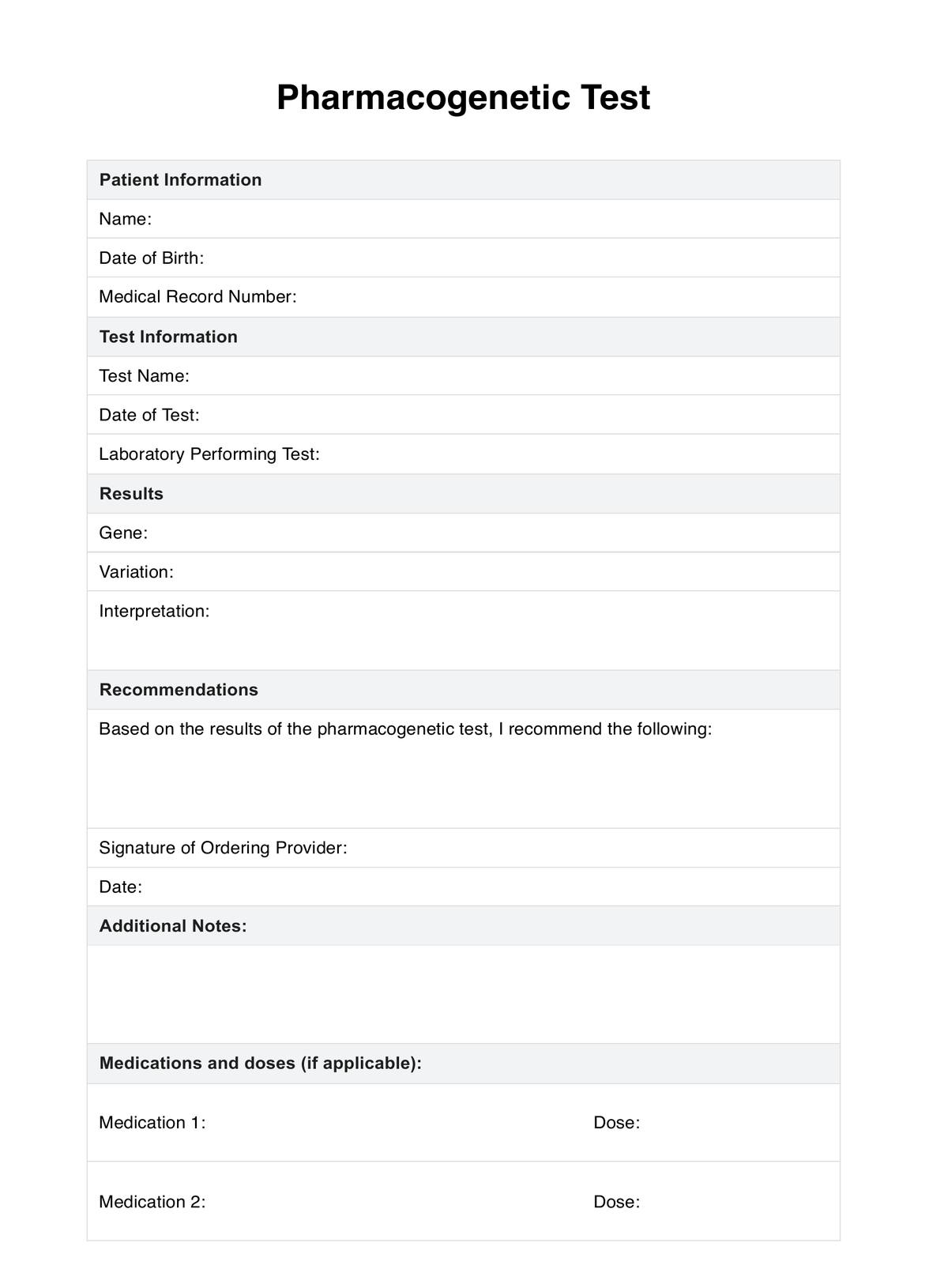
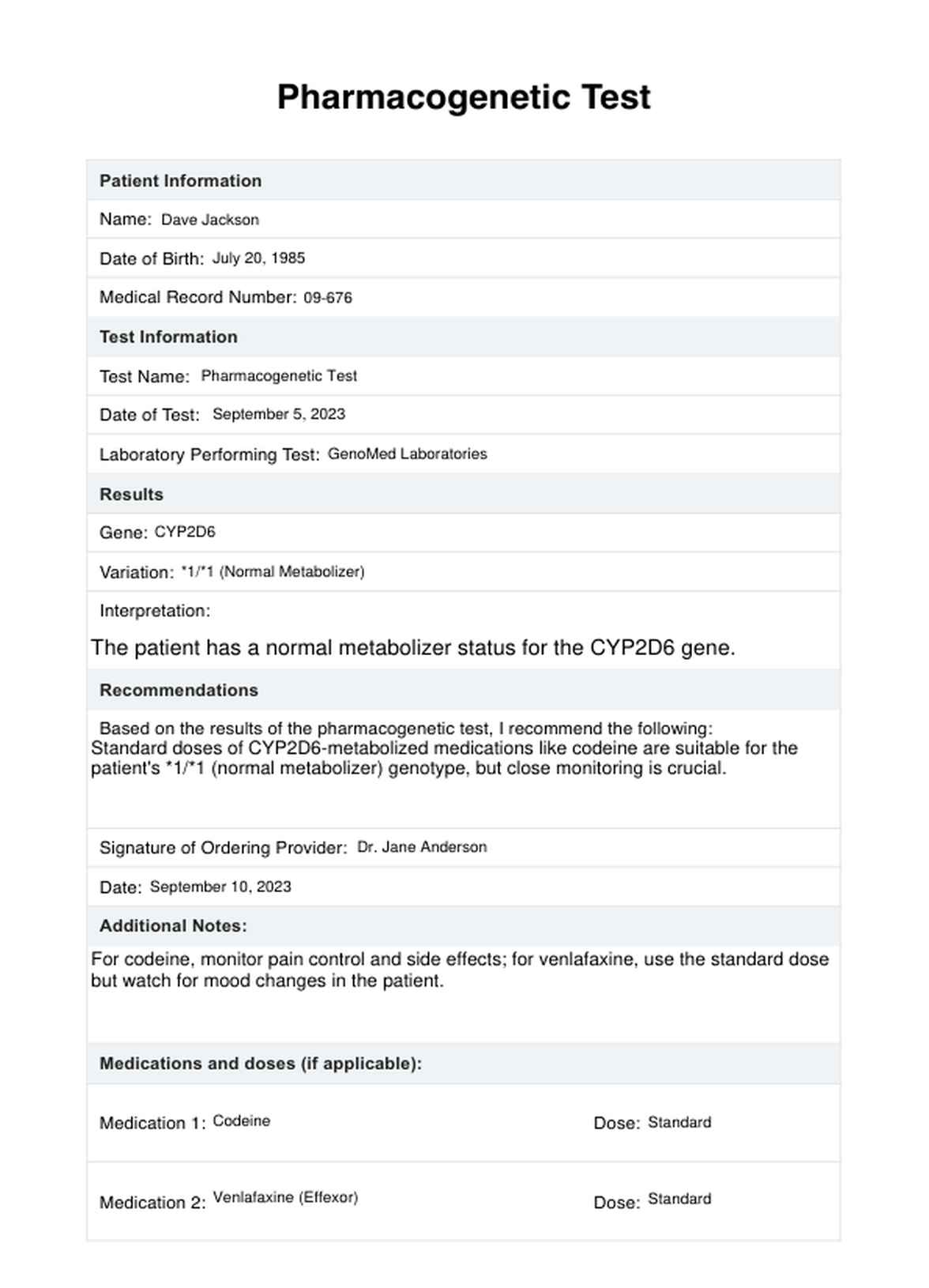


















-template.jpg)

















































































